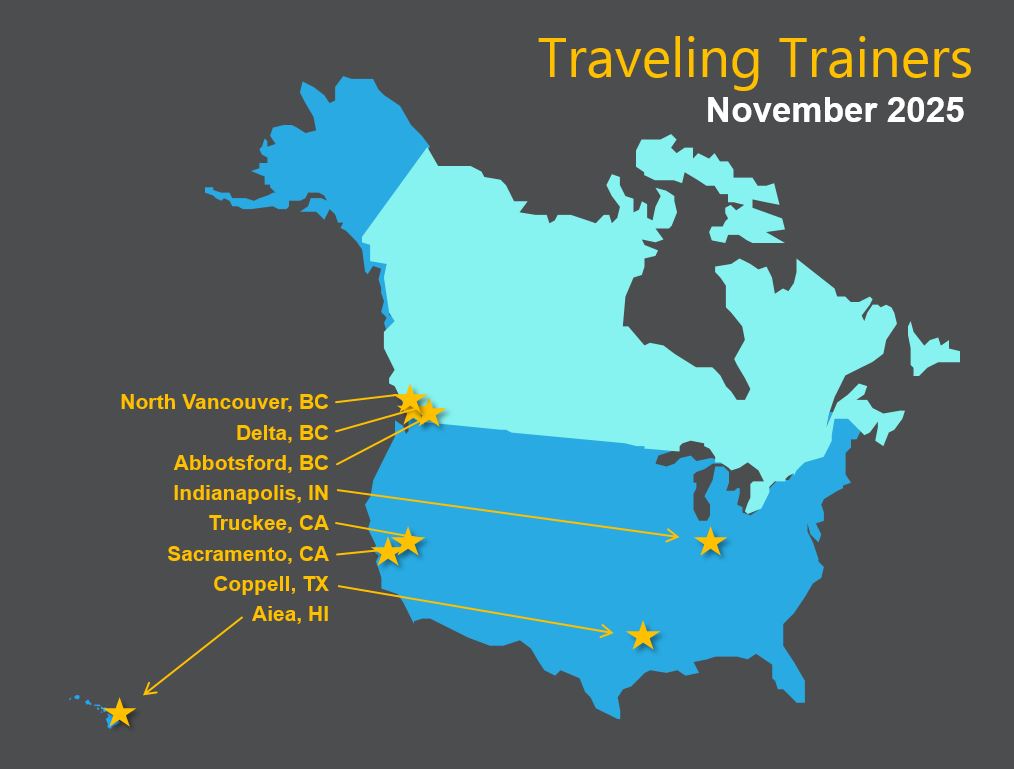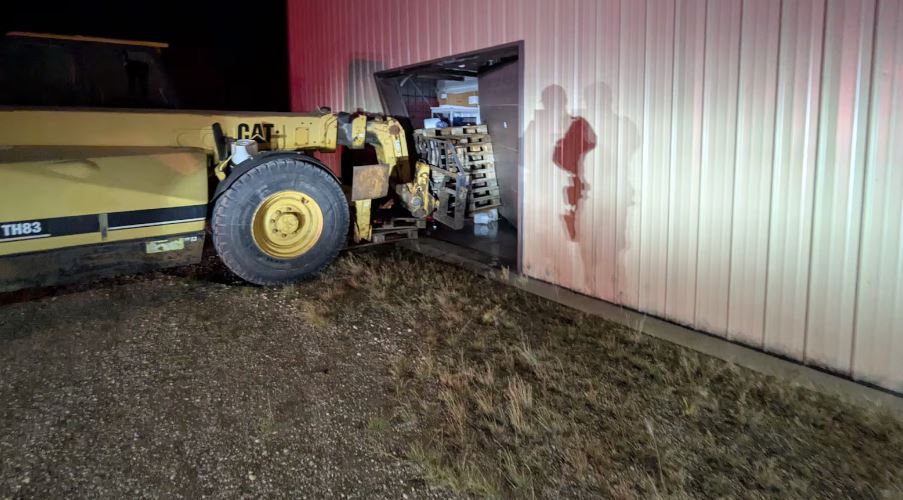
The IVES Update Newsletter is a highly informative monthly e-newsletter. It contains up-to-date industry information, regulatory updates, stories from the field, upcoming program dates, What’s Wrong With This? photos, incident reports, our interactive “Ask Bob” question and answer column, new product details and much more.
Whether you're interested in forklifts, mobile elevating work platforms, loaders or excavators – we’ve got you covered. Want to receive it directly to your inbox? Sign up for our IVES Update e-Newsletter!
Year:

The basic components of effective safety cultures are well understood. High-performing safety cultures are more proactive than reactive. They include high levels of engagement on the part of leadership, they encourage reporting of hazards, near misses and incidents, and they focus on prevention and continuous improvement. A key to all these components is frontline employee engagement. Without the front line being fully engaged, it is impossible to know about and address all hazards, improve organizational systems that impact safety, and continuously improve. Yet frontline engagement can be difficult to achieve. The long history of blaming workers for incidents can be hard to overcome.
The good news is that over the last decade there has been increased understanding that mistakes are inevitable and that blame only serves to discourage reporting and engagement and stifle learning and improvement. (This philosophy has been around for decades, but it has only recently been adopted in the mainstream.)
The term “psychological safety” has been adopted to point out the importance of creating an environment free of fear around reporting. If employees believe they will face discipline or termination by admitting mistakes (in the form of reporting incidents, near misses, or at-risk behavior), then they will not be forthcoming. This will suppress improvement.
As organizations move away from blaming employees and towards looking at systems as the cause of most at-risk behavior, a nagging question has emerged. Does creating psychological safety and focusing on systemic causes mean there is no personal accountability? Does the shift away from “blaming the worker” mean there is no accountability for individual behavior? As one of our clients put it, does everyone get a “get out of jail free card?”
Obviously, organizations must still hold employees accountable. But how does that work in a no-blame culture? The first step is to be clear about what is meant by accountability. Historically, accountability has been reactive; that is, after something happens, we hold people responsible for what occurred. The people most often held responsible are frontline employees. The manner of holding them accountable is usually a form of discipline. Most organizations have evolved past this and now understand that blaming and disciplining the frontline employee is not helpful and very often unjust.
Many leaders now understand that people’s behavior is a function of the context within which they work. If the physical environment and organizational systems do not support safe work, then blaming the worker makes no sense. For example, consider a worker doing an infrequent task under the following conditions: the training for the task was years ago, the written procedure isn’t clear, there is no discussion of the task during the pre-shift meeting, and the supervisor never checks in with the employee during the task. If that employee then performs an at-risk behavior out of confusion or uncertainty, is it fair to blame them? The organizational systems did not set that employee up to work safely, so most would say no, the employee should not be blamed. Unfortunately, not every instance is so clear cut.
Therein lies the problem. How do we differentiate a purposeful violation of safety rules from an honest mistake? To err on the side of assuming everything is an honest mistake and a function of organizational systems is unwise. Such an extreme approach could theoretically lead to frontline employees willfully engaging in unsafe acts, knowing that there will be no negative consequences. To always blame the system undermines an organization’s ability to deal with the occasional bad actor. That would clearly be counterproductive.
So, what is the role of accountability in progressive safety cultures? As a starting point, it is important to make a distinction between reactive or retrospective accountability and proactive or preventative accountability.
Retrospective accountability is about finding blame: finding the individual who made the mistake and delivering negative consequences. As we have all learned, this kind of accountability seldom results in a safer workplace. It generates fear and resentment which stifles frontline engagement. Alternatively, preventative accountability focuses on identifying changes that need to be made to prevent the incident from happening again. It holds the appropriate people accountable for making those changes. Frontline performers need to be held accountable for what is under their control, and leaders for what is under their control.
Another important distinction to make is the nature of the accountability. Accountability is often synonymous with punishment. But that does not have to be the case. We can, and should, hold people accountable by building in positive reinforcement for the preventative actions within their control. Positive reinforcement not only strengthens preventative behaviors, but it also builds trust and engagement, further supporting a proactive safety culture.
Accountability is essential in safety. Progressive safety cultures are cultures without blame, not cultures without accountability. The key is being clear about who should be accountable for what, and how we hold them accountable. When we hold employees at all levels accountable for preventative behaviors, rather than mistakes, we make the workplace safer while building engagement and a stronger safety culture.
Source: ISHN September 2025
 The LCBO has been fined $80,000 after a worker at a London warehouse was critically injured during a training session more than three years ago.
The LCBO has been fined $80,000 after a worker at a London warehouse was critically injured during a training session more than three years ago.
The Ministry of Labour, Immigration, Training and Skills Development says the crown agency was fined after it pleaded guilty in provincial offences court in August to violating a section of the Occupational Health and Safety Act, or OHSA.
Ministry officials say the worker had been operating a powered pallet lift truck at the LCBO's Wilton Grove Road warehouse on June 20, 2022, and was practicing turns in an aisle when they lost control and collided with a steel storage rack.
At the time, the ministry says the worker and others had been taking part in a training exercise on how to use the pallet lift truck, also known as a transporter.
The training was being carried out by a seasonal worker at the warehouse who had experience operating the transporter, but was not certified to train others, the ministry said. The worker injured had not operated the transporter before, and had trouble controlling it before the crash.
"The trainer, believing the workers had already received the theoretical part of the training, gave an incomplete overview of how to complete a visual and operational inspection based on the employer’s checklist and manufacturer’s manual," a ministry court bulletin reads.
"An investigation by the Ministry of Labour, Immigration, Training and Skills Development found that the trainer lacked the necessary qualifications and had not received recent instruction on the equipment or the LCBO’s training protocols."
The ministry found the LCBO had failed to provide the worker with proper information, instruction and supervision to protect their health and safety, in violation of OHSA.
In addition to the $80,000 fine, a 25 per cent victim fine surcharge was also imposed, as required under the Provincial Offences Act.
The LCBO did not respond to a request for comment.
Source: CBC News October 2025
 Q: Hi Bob,
Q: Hi Bob,
Do you need a valid drivers license to operate a forklift in the province of British Columbia?
Can you drive while suspended or having license revoked due to medical issues?
A: Thanks for checking in with Ask Bob!
There are no requirements to have a valid drivers license unless the forklift will be operating on a public road per WSBC.
However, the CSA standards (B335-15) do state some requirements for forklift operators:

 "The patience and empathy made a difference in my learning experience. They tailored their approach to my needs and demonstrated extensive knowledge."
"The patience and empathy made a difference in my learning experience. They tailored their approach to my needs and demonstrated extensive knowledge."
Lorenda G, Premium Forklift Trainer Certification
"Great class, teaching style was fun and followed a great structure. I enjoyed the layout of the class. Feel prepared to teach and evaluate new/experienced operators."
Justin T, Premium Combo Trainer Certification
"I felt I learned a lot and was greatly set up to train others in the future while enjoying the class at the same time. Would give 10/10 rating and would recommend the class to others."
Marco B, Express Standard Forklift Trainer Certification
copyright © IVES Training Group 2022 All Rights Reserved.